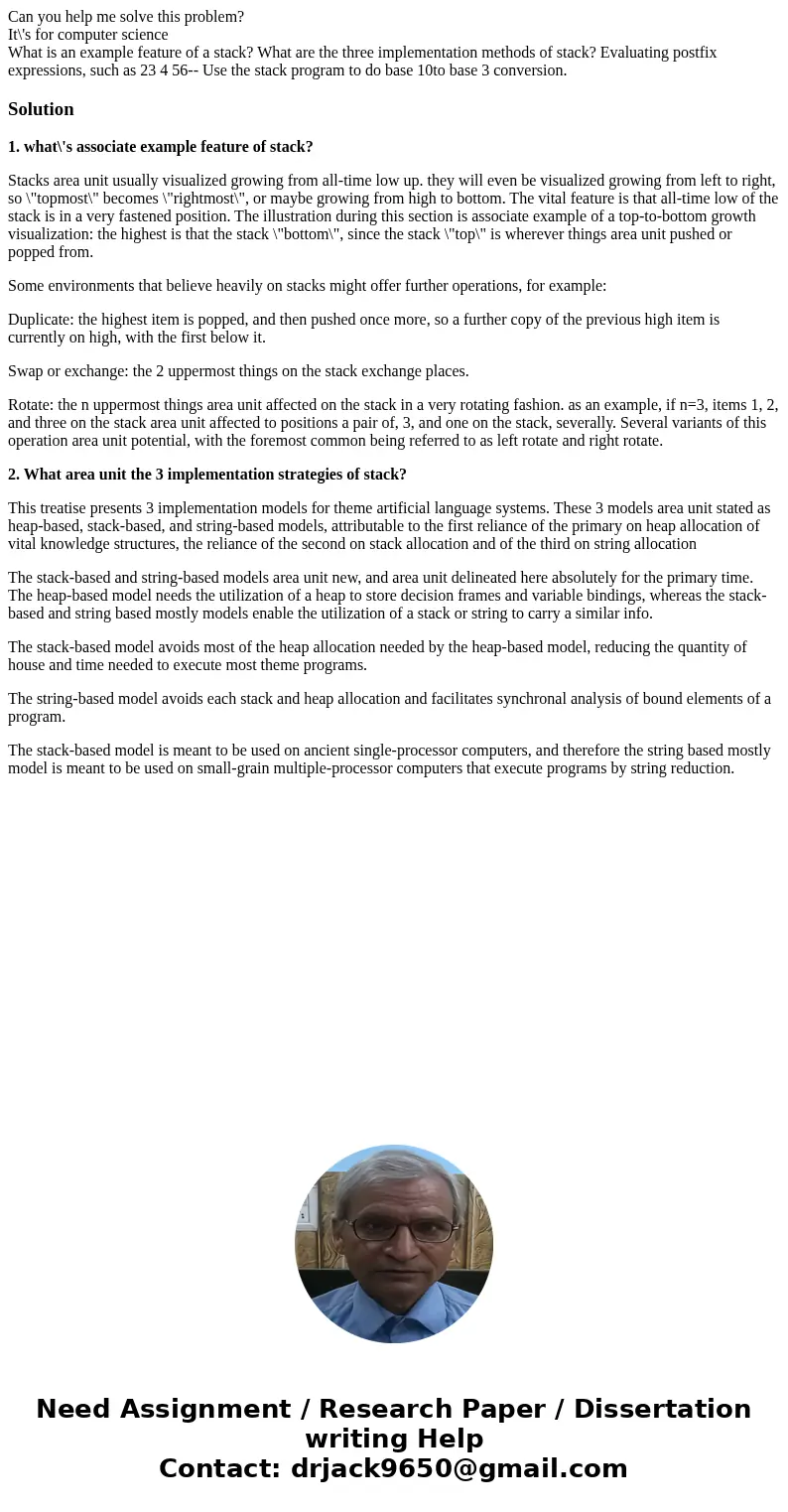Can you help me solve this problem Its for computer science
Solution
1. what\'s associate example feature of stack?
Stacks area unit usually visualized growing from all-time low up. they will even be visualized growing from left to right, so \"topmost\" becomes \"rightmost\", or maybe growing from high to bottom. The vital feature is that all-time low of the stack is in a very fastened position. The illustration during this section is associate example of a top-to-bottom growth visualization: the highest is that the stack \"bottom\", since the stack \"top\" is wherever things area unit pushed or popped from.
Some environments that believe heavily on stacks might offer further operations, for example:
Duplicate: the highest item is popped, and then pushed once more, so a further copy of the previous high item is currently on high, with the first below it.
Swap or exchange: the 2 uppermost things on the stack exchange places.
Rotate: the n uppermost things area unit affected on the stack in a very rotating fashion. as an example, if n=3, items 1, 2, and three on the stack area unit affected to positions a pair of, 3, and one on the stack, severally. Several variants of this operation area unit potential, with the foremost common being referred to as left rotate and right rotate.
2. What area unit the 3 implementation strategies of stack?
This treatise presents 3 implementation models for theme artificial language systems. These 3 models area unit stated as heap-based, stack-based, and string-based models, attributable to the first reliance of the primary on heap allocation of vital knowledge structures, the reliance of the second on stack allocation and of the third on string allocation
The stack-based and string-based models area unit new, and area unit delineated here absolutely for the primary time. The heap-based model needs the utilization of a heap to store decision frames and variable bindings, whereas the stack-based and string based mostly models enable the utilization of a stack or string to carry a similar info.
The stack-based model avoids most of the heap allocation needed by the heap-based model, reducing the quantity of house and time needed to execute most theme programs.
The string-based model avoids each stack and heap allocation and facilitates synchronal analysis of bound elements of a program.
The stack-based model is meant to be used on ancient single-processor computers, and therefore the string based mostly model is meant to be used on small-grain multiple-processor computers that execute programs by string reduction.

 Homework Sourse
Homework Sourse